Daily Word of Grace for May 2020. Current postings of Daily Word of Grace can be found at the upper level of the page. Here is a link to see the current postings.
Following his conversion to Christianity in 1979 recent Nobel laureate Bob Dylan released three overtly Christian albums: Slow Train Coming (1979), Saved (1980) and Shot of Love (1981). There are some often overlooked gems on these albums, including the final track on Slow Train Coming, a gorgeous ballad called “When He Returns” that puts things in perspective in light of the future Second Coming of Christ. The final verse is a call to surrender to the grace of God without pretension: “Surrender your crown on this blood stained ground, take off your mask. He sees your deeds, He knows your needs even before you ask. How long can you falsify and deny what is real? How long can you hate yourself for the weakness you conceal? Of every earthly plan that be known to man, He is unconcerned. He’s got plans of His own to set up His throne when He returns.” That verse kills me (in a good way). How often do we leave our masks on, even with God? How often do deny what we know is real? How often do we hate ourselves for the weaknesses we conceal (though we cannot conceal anything from God). In response to the love of God expressed in Jesus’ death on the cross (John 3:16) we can indeed surrender our crown on that “blood stained ground” beneath that cross, and we can take off our mask. And in spite of what may or may not happen with all our earthly plans, God’s plans to establish the Kingdom of God, an eternal kingdom of unconditional love, remain fixed, and will come to full fruition “when He returns.”
Love and Prayers,
Dave
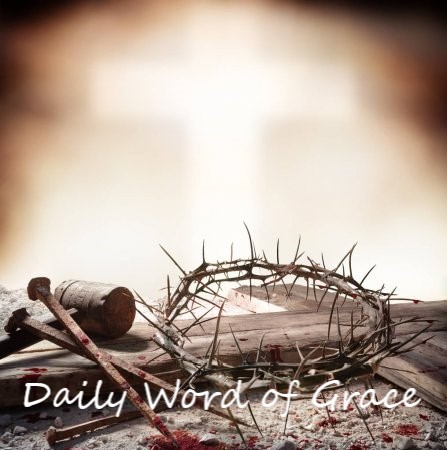

In Shakespeare’s play The Merchant of Venice Portia pleads for mercy for Antonio in one of the most beautiful descriptions of mercy ever written: “The quality of mercy is not strained. It droppeth as the gentle rain from heaven upon the place beneath. It is twice blessed: It blesseth him that gives and him that takes. ‘Tis mightiest in the mightiest. It becomes the throned monarch better than his crown. His scepter shows the force of temporal power, the attribute to awe and majesty wherein doth sit the dread and fear of kings, but mercy is above the sceptered sway. It is enthroned in the hearts of kings. It is an attribute of God himself” (IV.i.173-184). Mercy is indeed “mightiest in the mightiest” and “an attribute of God himself.” Every year in the collect for Ash Wednesday from The Book of Common Prayer we pray to “the God of all mercy” who out of mercy freely grants us “perfect remission and forgiveness” (264). We may keep a record of the wrongs we have done, along with a record of the wrongs others have done to us, but God covers every record of wrongs with mercy that continually “droppeth as the gentle rain from heaven” because on Good Friday Jesus’ blood gently dropped from the cross, and God’s “mercies never come to an end” (Lamentations 3:22). In response Jesus calls us to follow his example, “Be merciful, just as your Father is merciful” (Luke 6:36)—for truly mercy “blesseth him that gives and him that takes.”
Love and Prayers,
Dave
A particularly moving poem by the great nineteenth century poet Emily Dickinson is about something we all need, especially in hard times, hope: “Hope is the thing with feathers that perches on the soul, and sings the tune without the words, and never stops at all.” This song of hope from this bird is particularly powerful during a storm: “And sweetest in the gale is heard; and sore must be the storm that could abash the little bird that kept so many warm.” Scripture also assures us of the reality of hope in God even in the midst of storms: “We have this hope, a sure and steadfast anchor of the soul” (Hebrews 6:19). When the disciples were in the midst of a terrible storm Jesus appeared unconcerned as he slept, but when they called out to him, Jesus stilled the storm because of course he was actually concerned for them, as always (Matthew 8:23-26). In the final stanza Dickinson emphasizes that this song of hope is a ubiquitous, free gift: “I’ve heard it in the chillest land, and on the strangest sea; yet, never, in Extremity, it asked a crumb of me.” No matter how bad the storm gets, no matter what kind of “chillest land” or “strangest sea” you find yourself, God’s gift of hope, God’s song of hope remains ever present even in every “Extremity” you face. Today may a different bird, the Dove—the Holy Spirit—perch anew on yours soul and encourage you with a song of hope that indeed “never stops at all.”
Love and Prayers,
Dave


In his final book entitled All is Grace the late Christian preacher and writer Brennan Manning got right to the point: “My message, unchanged for more than fifty years, is this: God loves you unconditionally, as you are and not as you should be, because nobody is as they should be. It is the message of grace” (192). The first time I heard Brennan Manning preach I was a nineteen year old college student at an outdoor summer Christian music and preaching festival in rural Pennsylvania. I was riveted as the actual gospel of God’s actual unconditional love for all of us as we actually are pierced my hard and guarded heart and brought me to tears. The loving presence of the Holy Spirit was palpable. A gospel centered on anything other than the grace of God is not the gospel. It may be well intentioned, it may have practical wisdom for your life, it may sound witty or clever, it may even sound theologically deep and ecclesiastically elegant—but it is not the gospel. In scripture the Apostle Paul also got right to the point: “For by grace you have been saved through faith, and this is not your own doing; it is the gift of God—not the result of works, so that no one may boast” (Ephesians 2:8-9). Even now, God’s grace—God’s unconditional love for you as you are and not as you should be—remains the heart of the comforting, relieving, and actual gospel.
Love and Prayers,
Dave
In the soundtrack of the funny and insightful 1995 coming of age film Clueless is my favorite song by Radiohead, a song about the longing for the real thing in a plastic world, a song entitled “Fake Plastic Trees.” Thom Yorke sings, “A green plastic watering can for a fake Chinese rubber plant in the fake plastic earth, that she bought from a rubber man in a town full of rubber plans to get rid of itself….It wears her out, it wears her out, it wears her out, it wears her out.” The last verse really hits home for me, “She looks like the real thing, she tastes like the real thing, my fake plastic love. But I can’t help the feeling I could blow through the ceiling if I just turn and run…and it wears me out, it wears me out, it wears me out, it wears me out.” “Fake plastic love” indeed wears us out. In our world full of plastic goods, plastic smiles, and yes, plastic expressions of Christianity, we all still have a longing for real love from a real Person, the “real thing” as opposed to “fake plastic love.” In Jesus Christ God offers exactly that—real love for real people like you and me. There is nothing plastic or fake about the love of God, a love so real that it cost Jesus his life, which scripture assures us is the proof of God’s very real love for all of us (Romans 5:8). This real love of God remains rejuvenating good news for clueless people worn out in a plastic world.
Love and Prayers,
Dave


One beautiful May morning while walking through the streets of Paris, my daughter Becky and I came across a portion of ruins from the Bastille, the once notorious centuries old prison that held such famous prisoners as Voltaire. It later became a symbol of royal despotism that as you may remember was stormed on July 14, 1789—a date which has since become known as Bastille Day, a national holiday in France commemorating a key event in the French Revolution. All that remains of the Bastille today are a few places where you can see some ruins, like the one Becky and I came across. In spite of all the captivity and violence associated with the long history of the Bastille, guess what is now atop those ruins today? A playground. Literally on top of these Bastille ruins little children were running around as they laughed and played. That is an image of what God will do with this world, which like the Bastille, has been the scene of many people captive in a myriad of ways, as well as the scene of incalculable violence. And yet, as the great Old Testament prophet Isaiah foretold, part of God’s work of salvation looks like this: “They shall beat their swords into plowshares, and their spears into pruning hooks; nation will not lift up sword against nation, neither shall they learn way anymore” (Isaiah 2:4). In other words, places with histories of imprisonment and violence like the Bastille, like the world itself, will be turned into playgrounds—the captivity and violence replaced with freedom and laughter.
Love and Prayers,
Dave
A couple years ago I had the privilege of spending an afternoon at the Museum of Modern Art in Manhattan, one of the best afternoons of my life. Among the many landmark works of art housed there is Jackson Pollock’s 1947 “Full Fathom Five”, one of his famous “drip paintings.” From a distance it a beautiful collage of color, but as you look more closely it becomes even more fascinating because you notice that there is much more than paint on the canvas—things you would never expect to see, not just depicted in but literally part of, a painting: buttons, coins, cigarette butts, thumbtacks, nails, and other pieces of detritus. I was completely blown away that someone could make something so beautiful out of things the vast majority of us would simply throw away. The title of this painting, “Full Fathom Five” is from Shakespeare’s play The Tempest in which the spirit Ariel describes a shipwreck, “Full fathom five thy father lies, of his bones are coral made, those were pearls that were his eyes” (I.ii.396-398). God is not a throwaway God, but a restoring God who can use every bit of detritus in your life—all the experiences and parts of your life you may dismiss or mentally throw away, and yes, the shipwrecks too—to create something beautiful: “We know that all things work together for good for those who love God, who are called according to his purpose” (Romans 8:28). In fact, God has reconciled, and will continue to reconcile, everything in your life through Jesus’ death on Good Friday: “Through him God was pleased to reconcile to himself all things, whether on earth or in heaven, by making peace through the blood of his cross” (Colossians 1:20). May a different spirit, the Holy Spirit, remind you anew of that today.
Love and Prayers,
Dave


One of the hardest sermons I have ever had to preach was at the funeral of a seventeen year old boy many years ago. He was funny, athletic, smart, and had lots of friends—but the cancer with which he was repeatedly stricken ultimately proved too much for him. During his final few months we spent a lot of time together—talking, watching funny movies, and eating (way too much) ice cream. The afternoon when his family and I gathered around his death bed a few days before he passed is one I will never forget, not only because it was so heartbreaking but also because what he did in that moment was thank us for all we meant to him, thank us for our love for him and presence with him. After his funeral his mother came to my office and tearfully hand delivered a note he had written me. Guess what kind of note it was? Yes, a thank-you note. Even as this boy was dying of cancer he was telling those he loved how thankful he was for them. Even as he was dying of cancer he was writing thank-you notes, with squiggly erratic cursive because he could no longer hold his hand still as he wrote. I have never forgotten that. Scripture exhorts us, “Give thanks in all circumstances; for this is the will of God in Christ Jesus for you” (1 Thessalonians 5:18). This goes way past having a positive attitude or maintaining an optimistic outlook because giving thanks “in all circumstances” reminds us that at the end of the day every positive thing we experience is ultimately a gift. This is why one of the key parts of the service for Holy Communion is literally called “The Great Thanksgiving” (The Book of Common Prayer 361). No matter what, even in the face of death, we still have much for which to be thankful to God—especially the unconditional love given us in Jesus Christ, a love that is stronger than cancer, stronger than death.
Love and Prayers,
Dave
In Cormac McCarthy’s award winning 1992 novel All the Pretty Horses John Grady Cole has a moving conversation with Duena Alfonsa, the grandaunt and godmother of Alejandra, the girl with whom he has fallen in love. Duena notices the scar on John Grady Cole’s cheek, “I’m going to guess that the scar on your cheek was put there by a horse.” “Yes mam. It was my own fault.” She watched him, not unkindly. She smiled, “Scars have the strange power to remind us that our past is real. The events that cause them can never be forgotten, can they?” “No mam” (135). All of you have scars—whether internal or external, whether scars you show others and perhaps brag about, or scars you show no one and refuse to discuss with anyone. Those scars remind you that your “past is real” and that the events that caused them “can never be forgotten.” The gospel is good news for scar bearers, because God knows you better than you know yourself, including your scars and the events that caused them. Moreover, even now the Risen Jesus still bears the scars that remind all of us that God’s love for us is indeed very real, that the events that caused them in his passion and death for the world, including you, on Good Friday, “can never be forgotten.” This is true for the whole world corporately, and for all of us individually, as Jesus made crystal clear to “doubting” Thomas when he showed him these very scars (John 20:24-28).
Love and Prayers,
Dave


In “An Order for Compline”, a beautiful brief liturgy for prayer found in The Book of Common Prayer and intended for use at the end of the day, there is powerful prayer for grace in times of uncertainty: “Be present, O merciful God, and protect us through the hours of this night, so that we who are wearied by the changes and chances of this life may rest in your eternal changelessness; through Jesus Christ our Lord. Amen” (133). All of us have certainly been dealing lately with many unforeseen and challenging “changes and chances of this life”, and yet by God’s grace we can still rest in God’s “eternal changelessness.” Scripture assures us that through what we may call the “changes and chances of this life” God remains unchanging in love, grace, and presence. We worship a God “with whom there is no variation or shadow due to change” (James 1:17), a God who “is the same yesterday and today and forever” (Hebrews 13:8), a God who with us everywhere and always—“Remember, I am with you always, to the end of the age” (Matthew 28:20). Finally, even when stressful external and internal circumstances connected with the “changes and chances of this life” cause deep internal and external unrest, God’s invitation to all of us still remains, “Come to me, all you that are weary and carrying heavy burdens, and I will give you rest” (Matthew 11:28).
Love and Prayers,
Dave
Of the many spaceships in the epic Star Wars movies my favorite has always been the Millennium Falcon, the ancient ship flown by Han Solo with his friend Chewbacca in the earlier films and by Rey and Finn in the later films. The Millennium Falcon not only has an awesome name, it just keeps going. On the surface it always seems that it is falling apart, that it has seen its best days, that it is obsolete. And yet again and again the old Millennium Falcon comes through, especially in peril and crisis. The coolest aspect of the Millennium Falcon is its ability to “jump into hyperspace.” I have no idea how this works but it means those traveling in it can cover vast differences in just moments (and it looks so awesome on the big screen). The Millennium Falcon reminds me of the gospel, which through the centuries has often been dismissed as something that is falling apart, or has seen its best days, or is obsolete. And yet the gospel just keeps going all around the world. In spite of all the wars and natural disasters and pandemics, in spite of the ebb and flow of secularism and atheism, the hope of the gospel of God’s unconditional love in Jesus Christ just keeps going. Perhaps this is because in one way or another many of us have personally experienced the reality of the gospel in some “jump into hyperspace” way—we have no idea how it works, but it is awesome and it is true. Scripture assures us that nothing can separate us from the love of God (Romans 8:38-39), a love that always comes through in peril and crisis. Like the Millennium Falcon, the gospel just keeps going, and always will.
Love and Prayers,
Dave


As you know, your sense of smell, olfactory sense, is especially powerful in triggering memories. A smell can instantly transport you back to specific moment in your life. These memories may be good—perhaps the smell of chocolate chip cookies baking in the oven transports you back to your grandmother’s kitchen, or the smell of fresh cut grass on a fall afternoon transports you to a high school athletic practice, or the smell of cotton candy transports you back to a county fair your parents took you to as a child. However these memories may not be so good—perhaps the smell of a hospital room transports you back to a loved one’s deathbed, or the smell of a certain perform as you walk through a shopping mall transports you back to the moment the girl you loved (who wore that exact perfume) broke your heart, or the smell of a certain kind of flower that transports you back to a funeral where you wept. Just days before his passion and death, Jesus was at a dinner party and in a moment of extravagant generosity a woman broke a jar of expensive perfume and poured it on Jesus’ feet, foreshadowing his impending death and burial (John 12:1-8). That perfume was so strong it is likely that even on the cross Jesus could still smell that evidence that he was loved. Scripture compares those who share the gospel of the unconditional love of God with others to a good smell, “the aroma of Christ to God among those who are being saved” (2 Corinthians 2:15). The fragrance of God’s extravagant grace will always transport you to a place where you are reminded you are fully known, fully forgiven, fully loved.
Love and Prayers,
Dave
In the spring of 1989 some college friends and I went to see the classic baseball movie Field of Dreams. It stars Kevin Costner as Ray Kinsella, an Iowan farmer who in response to a voice that tells him, “If you build it, he will come” builds a beautiful baseball field in the middle of his cornfield. Over the course of the film you learn that Ray’s relationship with his father was always strained—they just never seemed to connect, and John had intentionally done and said things to spite him. Ray’s father is dead and he is overcome with regret and wishes he could apologize to and reconnect with his father. Near the end of the film many members of the 1919 Chicago White Sox team, players dead for decades, magically walk out of the cornfield and onto the field John had built, and play a baseball game. And at the end of the film the identity of the “he” of “If you build it, he will come” is revealed—it is none other than Ray Kinsella’s father, John, the young man playing catcher. Ray introduces his father to his wife and daughter, and later asks him a question all of us ask at one time or another, “Is there a heaven?” His father responds, “Oh yeah, it’s the place dreams come true.” A few moments later Ray is playing catch with his father, their relationship finally healed. Scripture assures us not only of the reality of heaven itself (John 14:1-3; Revelation 4:1ff) but the reality that it will surpass all our dreams: “What no eye has seen, nor ear heard, nor the human heart conceived, what God has prepared for those who love him” (1 Corinthians 2:9). And because of the death and resurrection of Jesus Christ, in heaven the broken relationships in your life, like that between Ray and John, will also finally be healed (Colossians 1:19-20).
Love and Prayers,
Dave

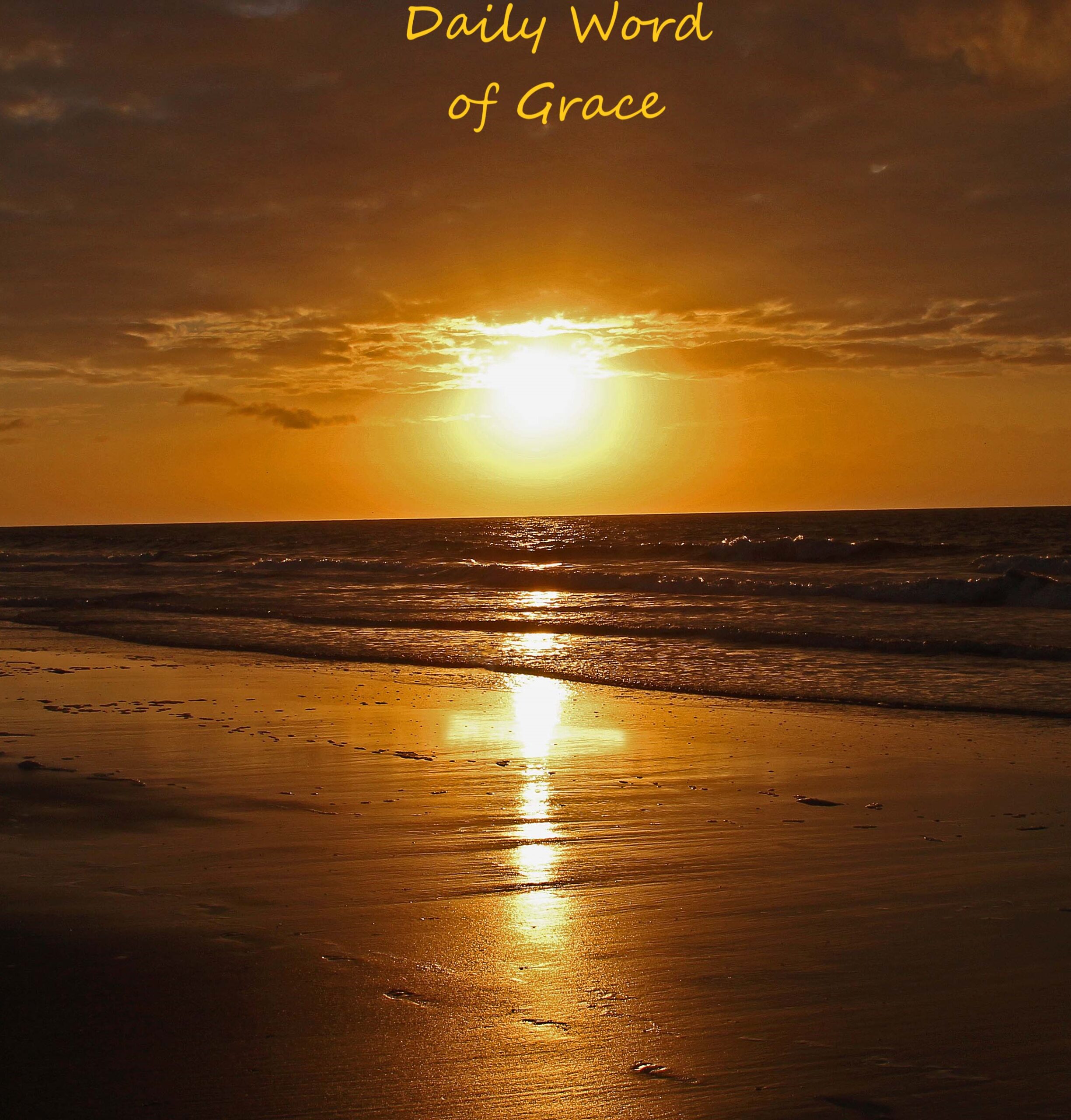
One of my favorite songs by the Beatles is “You’ve Got to Hide Your Love Away”, penned by John Lennon and on their 1965 album Help! It describes something all of us have experienced at one time or another, a broken heart: “Here I stand head in hand, turn my face to the wall. If she’s gone I can’t go on, feeling two-foot small. Everywhere people stare, each and every day. I can see them laugh at me, and I hear them say, ‘Hey, you’ve got to hide your love away.’” Having your heart broken leaves you vulnerable, “feeling two foot small”, and indeed wanting to hide your love away—because who wants to have your heart broken yet again? The good news of the gospel is that Jesus chose not to hide God’s love away, not from you, not from anyone. Even though Jesus’ heart was broken again and again throughout his earthly life and ministry—from being labeled “illegitimate” as a child (Mark 6:3), to being labeled a “friend of sinners” (Matthew 11:19), to being accused of healing people through demonic means (Mark 3:22), to being forsaken by his disciples (Matthew 26:56), to being falsely accused of blasphemy and sentenced to death (Matthew 26:55-56), all the way to being nailed to a cross and left to die(Mark 15:25)—Jesus never hid his love away. Even on Good Friday as everywhere people stared and Jesus could see people laugh at him, he still refused to hide his love away—“Father, forgive them; they do not know what they are doing” (Luke 23:34). And even now, the Risen Jesus refuses to hide his love away, an ever-present love for everyone, especially those with a broken heart.
Love and Prayers,
Dave
Living many years of my life in Virginia, I often visited the magnificent Shenandoah National Park. As a kid every time we would drive there the excitement of seeing the mountains emerge from the horizon the closer we came always moved me. On an even grander scale the same thing happens out west if you‘re driving westward across Eastern Colorado and see the immense Rocky Mountains emerge from the Great Plains, or if you’re driving westward across the desert of southwestern California and see the Sierra Nevada Mountains come into view. What is it about mountains that beckons us, fills us with hope, and calls to our hearts? The psalmist wrote about this: “I lift up my eyes to the hills—from where will my help come? My help comes from the Lord, who made heaven and earth” (Psalm 121:1-2) and “As the mountains surround Jerusalem, so the Lord surrounds his people, from this time on and forevermore” (Psalm 125:2). The immensity of the mountains, mountains which have been there eons before us and will be there eons after us, is a silent, constant reminder from the One who “made heaven and earth” and “surrounds his people” of God’s love for us and presence with us. On Good Friday Jesus, who “made heaven and earth” and whose grace surrounds us even now, died on a hill called Calvary—and his love and grace continue to beckon us, fill our hearts with hope, and call to our hearts. “I lift up my eyes to the hills—from where will my help come?” Jesus Christ.
Love and Prayers,
Dave


God is an ever-creative God, creating things ex nihilo (out of nothing). This is a recurring theme throughout scripture. The Old Testament begins with a beautiful poetic account of how God “created the heavens and the earth” (Genesis 1:1). This foreshadows what we read in the Prologue at the beginning of the Gospel According to John, in which Jesus is referred to as “the Word”: “In the beginning was the Word, and the Word was with God, and the Word was God. He was in the beginning with God. All things came into being through him, and without him not one thing came into being” (John 1:1-3). This ever-creating ex nihilo work of God continues not only on a universal level, but also on a personal level, even in your life: “If anyone is in Christ, there is a new creation: everything old has passed away; see everything has become new!” (2 Corinthians 5:17). In your life God can create joy, peace, faith, hope—on and on—and most of all, love. You need bring nothing to the table, because God creates all those things ex nihilo. Lest you think this creative work of God applies solely to your earthly life, scripture assures us that God’s creative work continues in heaven. In his vision of heaven the same John whose gospel account bears his name recounts what he heard the One on the throne proclaim, “See, I am making all things new” (Revelation 21:5). In other words, this ever-creative, ever-creating work of God continues throughout eternity.
Love and Prayers,
Dave
In the Gospel According to John there is a moving episode in which Jesus goes to a well in the middle of the day. There is a woman there, which was unusual because normally women gathered at the well in the mornings and evenings, not only for water but also to socialize with one another—and yet there is this woman at the well all alone in the middle of the day. In their conversation Jesus reveals to her his compassion for her personal life, which was not just broken but shattered. Jesus did not judge her, or condemn her, or giver her unsolicited advice. Rather, he accepted her and gave her grace, with no catch. He also promised her a different kind of water: “Everyone who drinks of this water will be thirsty again, but those who drink of the water that I will give them will never be thirsty. The water that I will give will become in you a spring of water gushing up to eternal life” (John 4:13-14). Later this woman told her neighbors, “Come and see a man who told me everything I have ever done! He cannot be the Messiah, can he?” (John 4:29). She had indeed been given acceptance and grace by Jesus, who is indeed the Messiah. On Good Friday Jesus died for this woman at the well and for all like her, alone in the middle of the day fully aware of their shattered personal lives, including you. After his death Jesus’ body was speared by Roman soldier, and blood and water gushed up to eternal life for her, for the world, and for you (John 19:34). Even now the Risen Jesus, who still bears that scar in his side, can tell you everything you have ever done, and offers you acceptance and grace, with no catch.
Love and Prayers,
Dave

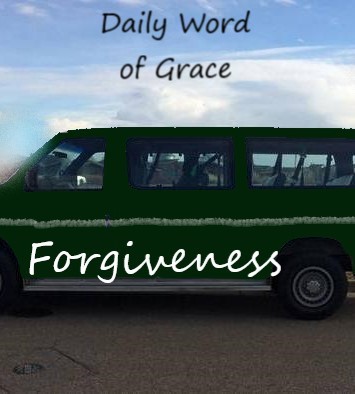
Back in the summer of 1993 when I was a twenty-four year old youth minister I tried to rent a fifteen passenger van for our summer mission trip, but was too young to do so. Our church decided to purchase a fifteen passenger van for our youth ministry (and other ministries too), and bought a beautiful new forest green van. After our mission trip I took the van to clean it. I vacuumed it out, cleaned up the interior, and then to top it off, took it through the automated car wash. I will never forget the horror I felt as I was sitting in this new, and newly cleaned, van in this car wash and heard a long, loud scraping sound. “That can’t be good” I thought. After going through the car wash I stepped out and looked…two brand new scrapes from bumper to bumper on both sides of the van. It was all I could do not to cry. I felt so awful about it. I drove it back to the church and showed our administrator, Frank (one of the truly nicest guys I have ever worked with). He slowly walked around the van as I stood there staring at the parking lot pavement, muttering, “I’m so sorry.” To my surprise and relief he started chuckling and said, “Well, now it has racing stripes, pretty cool! Don’t worry about it, Dave, it’s okay.” And he never brought it up to me again, ever (others in the church made up for that, but I digress). Jesus taught that those who have been forgiven much tend to love much (Luke 7:47). It’s true. Frank’s generous and immediate forgiveness of my “redecorating” the new church van created more love in me for him. It also reminded me of the generosity and immediacy of God’s forgiveness of all our sins (Psalm 103:3)—and still does.
Love and Prayers,
Dave
One of my favorite songs by the Talking Heads is their 1981 hit “Once in a Lifetime.” In addition to its addictive groove (just try not to move while listening to it), it contains insightful lyrics about waking up one day wondering how you ended up where you are: “You may find yourself living in a shotgun shack. And you may find yourself in another part of the world. And you may find yourself behind the wheel of a large automobile. And you may find yourself in a beautiful house with a beautiful wife. And you may ask yourself, ‘Well, how did I get here?’” In the Old Testament book of Proverbs there is a succinct exhortation that reminds us what to do when we are not sure where to go or what to do: “Trust in the Lord with all your heart, and do not rely on your own insight. In all your ways acknowledge him, and he will make straight your paths” (Proverbs 3:5-6). Even though you may not know how you ended up where you are, the Lord does, always has. And when relying on your insight falls short and doesn’t work out too well (something with which I have plenty of experience), the same Lord is worthy of your trust and will “make straight your paths” even through the landmines of life, even through pandemics, even through “the valley of the shadow of death” (Psalm 23:4). And there will be moments of grace and relief when you will realize the Lord has brought you through something you never though you would get through, all the way to your “desired haven” (Psalm 107:30)—and when it comes to the question, “Well, how did I get here?”, you will know.
Love and Prayers,
Dave
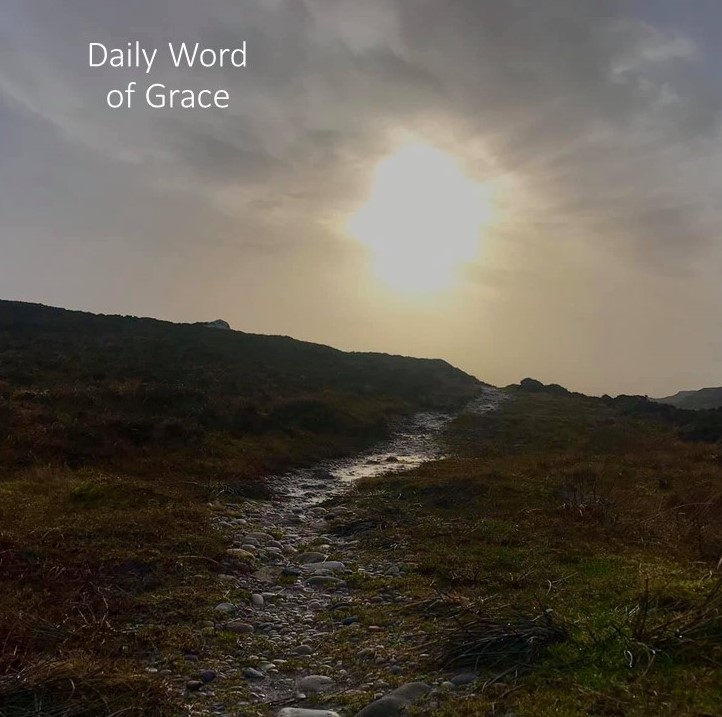
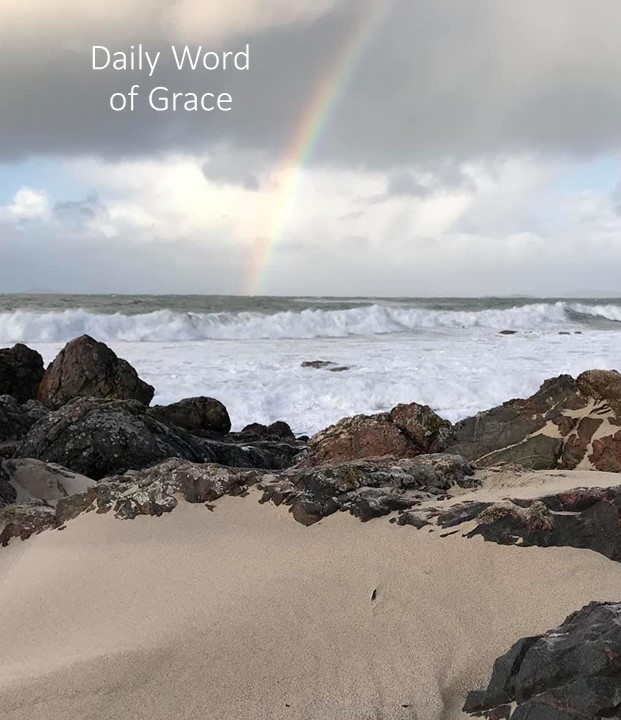
In arguably one of the best songs of the latter twentieth century, a song I cannot ever remember not knowing, James Taylor’s 1970 masterpiece “Fire and Rain” there is a vulnerable prayer: “Won’t you look down upon me, Jesus? You’ve got to help me make a stand. You’ve just got to see me through another day. My body’s aching and my time is at hand, and I won’t make it any other way.” Unless you are a straight-up liar, you can relate to this prayer, either today or in days past; if not, trust me, your time will come. The good news of the gospel is that Jesus answers that prayer, both individually and universally. In fact, at his incarnation Jesus did not just look down upon us, but left heaven to be born among us (Philippians 2:7). Throughout his ministry Jesus helped people make a stand, including healing the lame and paralyzed who could not stand at all. On Good Friday Jesus’ wounded and beaten body ached beyond anything we could imagine, and his time was at hand. From the cross Jesus looked down again upon the world he had created, the world for which he became incarnate, the world for which he died, and prayed, “Father, forgive them; they do not know what they are doing” (Luke 23:34). Through his death and resurrection Jesus continues to answer our prayer for help, and will do so until the end of our earthly journey, when our body’s aching and our time is at hand. In that moment, although we will not make it any other way, Jesus will continue to be the Way, world without end.
Love and Prayers,
Dave
One of my favorite Shakespearean monologues is in his tragedy Macbeth, when Macbeth, having succumbed to his murderous ambition reflects: “Tomorrow, and tomorrow, and tomorrow, creeps in this petty pace from day to day, to the last syllable of recorded time; and all our yesterdays have lighted fools the way to dusty death. Out, out, brief candle! Life’s but a walking shadow, a poor player that struts and frets his hour upon the stage, and then is heard no more. It is a tale told by an idiot, full of sound and fury, signifying nothing” (The Tragedy of Macbeth, V.v.19-28). Why would I like such a dark and nihilistic monologue? Not only because it is one of the high water marks of Shakespeare’s genius, but also because it shows us our need for something that transcends our own (hopefully not murderous) ambition, and reveals our need for the gospel of God’s love in Jesus Christ. Yes “all our yesterdays have lighted fools the way to dusty death” but Jesus Christ, the Light of the World (John 8:12), walked the way to his own dusty death on Good Friday in the midst of the “sound and fury” of a murderously ambitious world. In his death and resurrection Jesus transforms our “dusty death” to new life. That is the heart of the gospel. While some may dismiss the gospel as “a tale told by an idiot…signifying nothing” it is actually the good news of the never-ending love of God that will indeed last “to the last syllable of recorded time” and beyond. When the “brief candle” of your life is over and the curtain has fallen upon your “hour upon the stage”, God’s love ensures you a place in heaven, where “they need no light of lamp or sun, for the Lord God will be their light” (Revelation 22:5).
Love and Prayers,
Dave
